Q & A With Slow Fashion Advocate Erin Skinner
Slow fashion Australia advocate Erin Skinner was once a shop-a-holic who frequently spent big on fast fashion. Having reformed and refined her shopping habits, she’s now a PhD candidate in Conservation Psychology looking at how psychology influences fashion buying behaviours. We’re interested to know how much her research can help promote the move to choosing sustainable fashion over fast fashion…
When and how did you first become interested in slow fashion?
My interest in slow fashion came about abruptly towards the end of 2018. I was scrolling on social media and saw a TED-Ed video called The Life Cycle of a T-Shirt. It showed the environmental and social implications of the global fashion supply chain. It totally blew my mind. I was in the throes of fast fashion addiction, ordering parcels as often as fortnightly. At the same time, I considered myself to be an environmental person, who deeply cared about nature. I immediately realised that these two things, my fashion overconsumption and supposed love for the environment, could not co-exist. The familiar and uncomfortable feeling of cognitive dissonance nagged at me until I started making changes to my consumption behaviour.
“I immediately realised that …my fashion overconsumption and supposed love for the environment could not co-exist.”
What is Conservation Psychology and how did you get into it?
Conservation Psychology is the scientific study of the relationship between humans and the rest of nature, with the goal of encouraging behaviour that conserves biodiversity and the natural world.
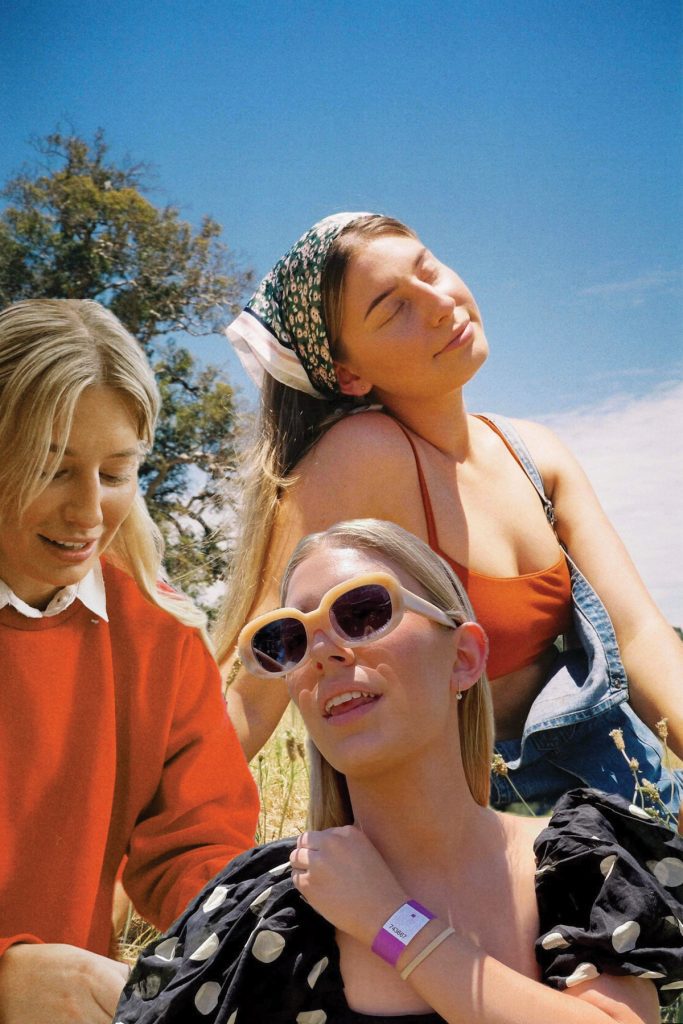
I was lucky enough to take Conservation Psychology as part of my undergraduate degree at UniSA, one of the very few universities to offer such a course, developed by my now-supervisor. Discovering a field that combined my passion for psychology and the environment was enlightening. I knew I wanted to find a way to continue on this pathway. It also connected me with my current PhD supervisor Associate Professor Carla Litchfield, a pioneer of the field.
What’s your research all about?
Recognising that existing patterns of consumption are unsustainable, my research explores fashion consumption from a Conservation Psychology perspective. In essence, I’m aiming to understand Australians’ knowledge, attitudes, and behaviours regarding fast and sustainable fashion, and the potential for psychological tools to promote more sustainable fashion behaviours.
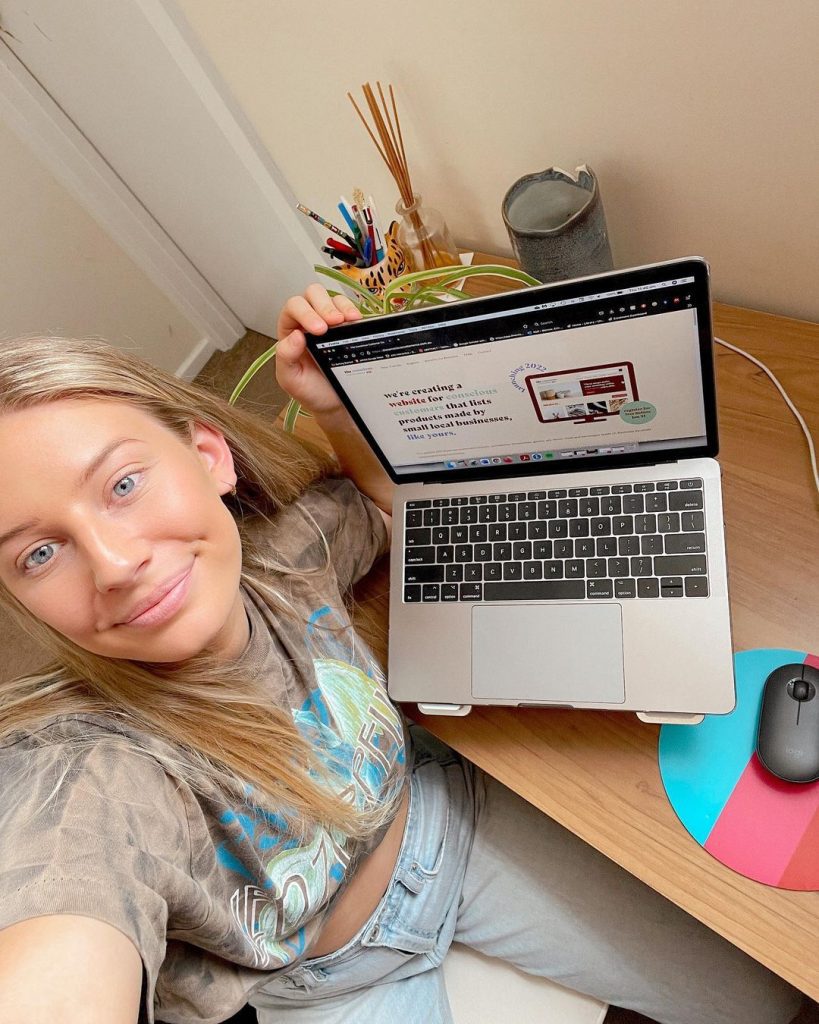
What is a sustainable shopper?
To me, a sustainable shopper is someone who has a personal style. They don’t follow trends, and love their pieces for the investments that they are. They might not be able to afford expensive brands, but whatever they buy they buy with conscious thought and re-wear and repair until it can no longer be worn.
How hard is it to be one?
I think, realistically, this is extremely hard and that’s not by accident. Any advocate for buying less realises pretty quickly that, practically, you’re working against a trillion-dollar industry dominated by companies with multi-million-dollar marketing departments whose sole purpose is to keep consumers hooked on buying. Ideologically, you’re working against a cultural and economic system dependent on growth.
“Any advocate for buying less realises pretty quickly that…you’re working against a trillion-dollar industry …”
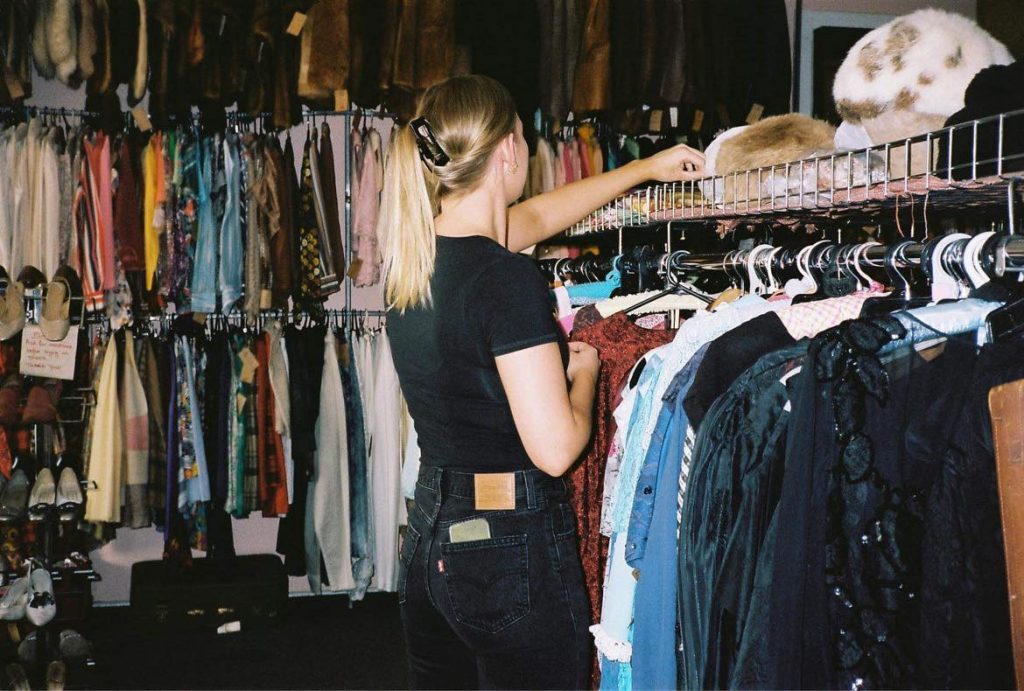
What proportion of fashion consumers do you think don’t understand or haven’t heard of “fast fashion”. Why is that?
In a 2019 study due for publication this month, more than half of my Australian participants reported having never heard of the term ‘fast fashion’. While I would hope that more have by now, how many don’t understand it is difficult to say.
“Fast fashion is a dirty word.”
Fast fashion is a dirty word. I wouldn’t think there are too many businesses proudly using the term. I’m not sure if mainstream consumers would be aware that fast fashion is more than ‘sweatshops’ and cheap prices, it’s the overwhelmingly dominant business model.
From what you have learnt in your research so far, do you think consumers actually care about the effects of their buying habits?
I do think most consumers genuinely care about the impacts of their purchases. However, there are other psychological factors that can outweigh this. For example: what is the point in changing my behaviour, when I know Tina and Brianna up the street are still placing multiple orders a week at Shein? If people don’t believe their actions will actually help to alleviate a problem, they are less inclined to engage in such actions to begin with. Raising awareness and fostering positive attitudes are only the first steps.
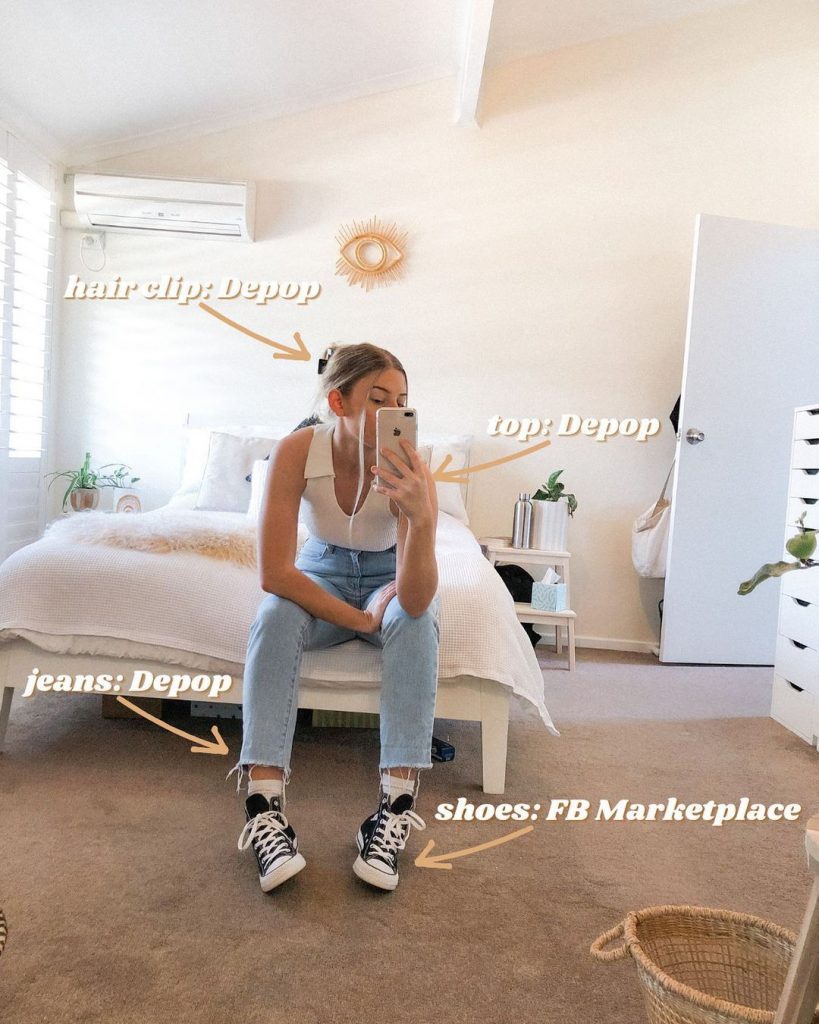
As a slow fashion advocate, can you outline your own fashion buying habits?
I would say about 90% of the items I buy now are secondhand. I basically draw the line at underwear, but everything else (shoes, activewear), I happily buy used. You’re more likely to find me scrolling on Depop or a Facebook buy/swap/sell group than shifting coat hangers at an op shop (although I do enjoy that, too).
How hard were they to adopt?
The biggest thing for me has been the reduction in the rate of my consumption. Once I stopped shopping cheap fast fashion so frequently, I found I had extra disposable income which allowed me to invest in more ethical/higher quality brands. It was quite hard at first, because I was an overconsumer for so long. The media (influencers, emails, advertisements) and trend FOMO encouraging you to shop can be overwhelming, but once I realised I could shop secondhand without directly supporting questionable brands the transition was easier. Now, the hardest thing is fighting against the little voice in your head trying to convince you that your ‘wants’ are actually ‘needs’ (they almost never are).
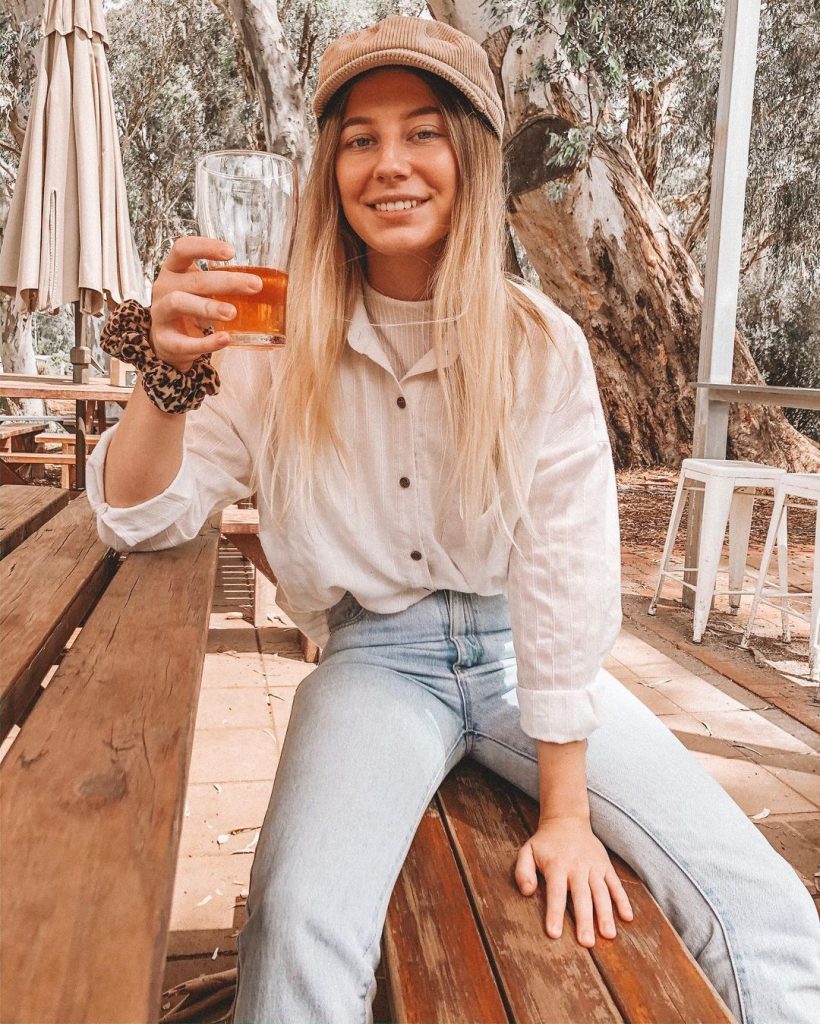
“…once I realised I could shop secondhand without directly supporting questionable brands the transition was easier.”
What are your favourite Australian fashion brands?
While I shop new brands pretty rarely, there’s a few I keep tabs on. I love Outland Denim and their advocacy against modern slavery. Not only are their garments stylish (and their collabs never miss)- but the focus on empowering their employees through a living wage and education programs is commendable.
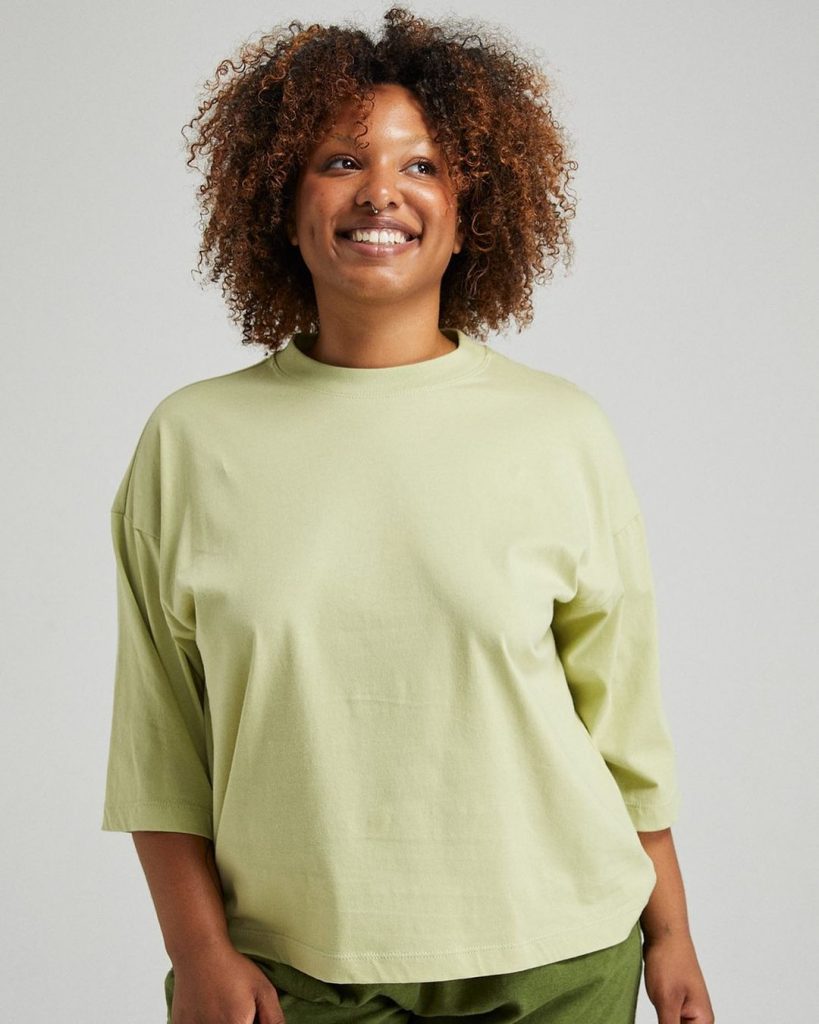
I also need to pay homage to Vege Threads. Brightly coloured basics made in Aus (even right here in SA) using preferred fabrics?? Incred. Their price point is super reasonable with this in mind, and most of their stuff goes up to a 3XL.
I really admire the footwear brand, TWOOBS. Vegan, recycled, uber-cute, and gender-diverse made all the better by a brand ethos that isn’t afraid to have tough conversations. Their podcast (Hey TWOOBS) ventures into elephant-in-the-room territory addressing the inherent paradox between producing/selling items, influencer marketing, sales, and ‘sustainability’.
Is “sustainable fashion” still an adequate label and what exactly should it mean?
There is a lot of discussion about this and I’m not entirely sure which camp I fall under.
When considering the traditional definition of ‘sustainable’ I would probably say that fashion, as an industry, is inconsistent with the true meaning of the word. In addition to this, it’s quite overused now to the point where I don’t think it holds practical meaning. That said, it seems to be the most universally-recognised term, which makes it attractive for communicative purposes. I am a big fan of Emma Håkansson and Collective Fashion Justice’s notion of total ethics fashion: for people, planet, and animals.

Meet and chat with Erin, one of the panellists at “In Conversation With…” during A Day of Fashion, The Parade Norwood, Saturday 15 October.
Follow her on @slowly.erin
